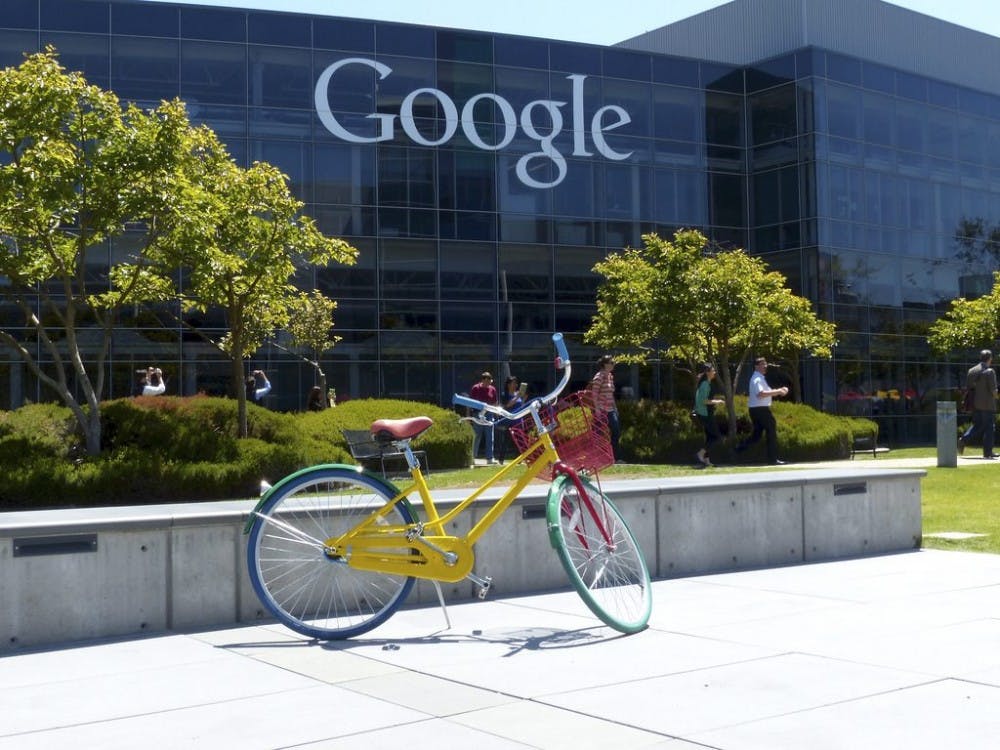President Donald Trump’s executive order on immigration prevents non-U.S. citizens in seven Middle Eastern countries — Iran, Iraq, Libya, Somalia, Sudan, Syria and Yemen — from setting foot in the United States.
Technology companies such as Google, Facebook and Microsoft fear that Trump’s administration could adversely affect their hiring process with further immigration reforms.
Indeed, Trump’s administration is working on an executive order that could displace current work-visa programs, which tech companies use to hire a substantial number of employees every year.
Initially, work-visa programs helped companies hire foreign workers when they could not identify qualified workers in the United States. When these programs were first implemented, foreign workers were perceived as disadvantaged because acquiring a work visa requires extra effort on the company’s part.
Recently, however, government officials have blamed companies for abusing work-visa programs to hire employees that are willing to work for less, effectively taking jobs away from U.S. citizens.
Some Hopkins students think that the Trump administration can enforce equal employment policies rather than alienate foreign workers.
“In order to promote American employment, it would be more useful to somehow require foreigners and Americans to be paid the same or similarly rather than ban tech companies from hiring foreigners,” senior Nadeem Bandealy said.
Senior Wilhelm Liano also observed the initial disadvantage that foreign workers experience.
“Foreign workers with work visas are at a disadvantage to start with,” Liano said. “By choosing someone with a work visa over someone who is local, it just shows the qualifications for this foreign worker are much higher than the local worker.”

Apple, Google and Microsoft do pay employees in their tech work-visa program, the H-1B program, upwards of $100,000 annually. However, India-based outsourcing companies, such as Infosys Limited and Tata Consultancy, only pay their H-1B employees around $70,000 a year, suggesting that outsourcing firms are the companies that are taking advantage of the existing work-visa programs.
Furthermore, outsourcing companies take up the majority of H-1B work-visas, which are limited to 85,000 total visas a year. American companies are left with fewer work visas to give to highly qualified employees.
Congress members from both parties are working to enforce stricter restrictions for the tech work-visa program. Legislation drafts are already in motion.
“My legislation refocuses the H-1B program to its original intent — to seek out and find the best and brightest from around the world and to supplement the U.S. workforce with talented, highly-paid and highly-skilled workers,” Zoe Lofgren, Democratic congresswomen from California, said in a statement.
Indian companies are heavily opposed to work-visa reform, with executives claiming that the lower salaried employees have more specialized training for the jobs that they are employed for.
“Inspections and investigation in the past have shown no cases of wrongdoing by Indian IT services companies, which have always been fully compliant with the law,” Shri R. Chandrashekhar, president of NASSCOM, the trade association responsible for the Indian outsourcing industry said.“The industry is open to any kinds of checks in the system, but they should not cause any hindrance to the smooth operation of companies.”
Other companies based in India insist that they first hire local talent in the U.S. and only resort to using the work-visa programs when they need to.
“We continue to hire and invest locally. However, given the skill shortages in the U.S. and the availability of technically skilled workforce in various global markets, we also rely upon visa programs to supplement these skills,” an Infosys company spokesperson wrote in an email to The News-Letter. “For the long term, we are also exploring new operating models to ensure business continuity as we navigate this dynamic environment. This includes reducing our visa dependency and efforts towards making Infosys a preferred employer in the U.S.”
If Trump’s administration restricts work visas for technology companies, there may be an increase for the costs of companies and, subsequently, consumers.
“If a tech work-visa ban went into effect, ultimately the consumer would feel the brunt of the increased labor costs,” Bandealy said. “So American workers might have jobs, but we would all have to pay $2,000 for an iPhone, so to speak.”
Essentially, the work-visa conundrum comes down to the power and interests of four sides: Trump’s administration, Congress, large American technology corporations and India-based outsourcing companies. With such differing perspectives in play, it may be a while before the issue gets resolved.





